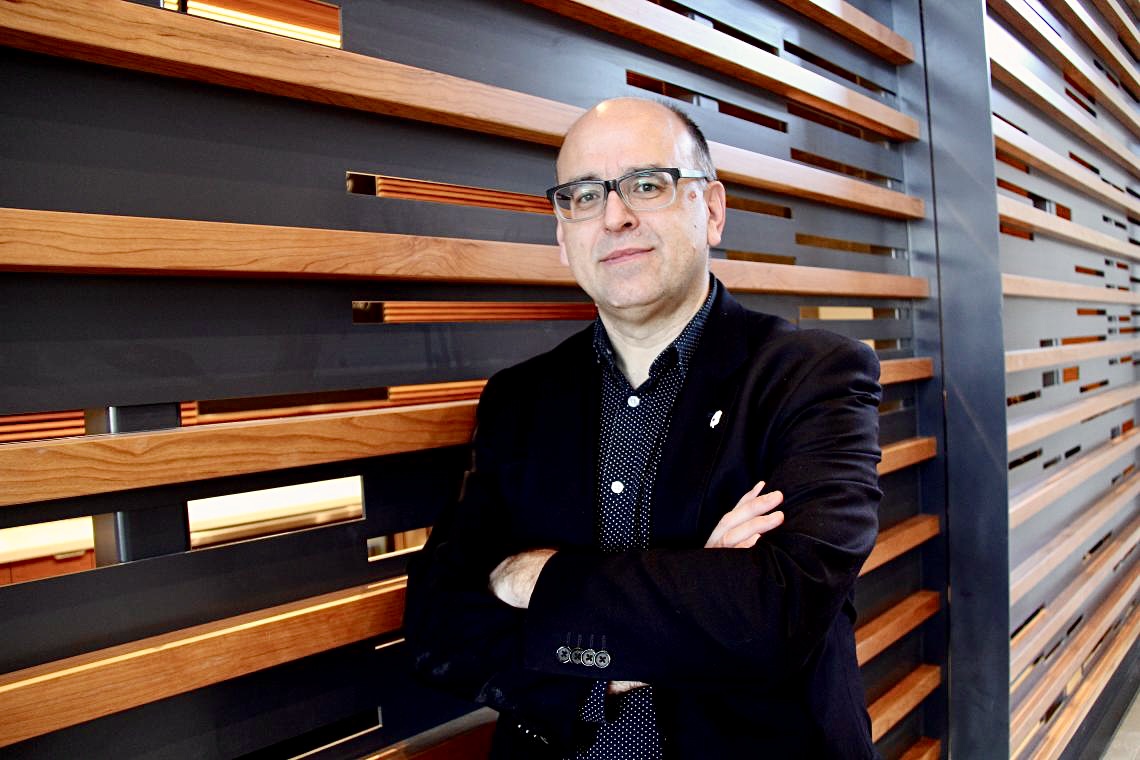Indigenous film and the importance of stories
Dr. Ken Derry dives into how Indigenous Peoples have sought to fight oppression and overcome trauma by telling their stories.
Dr. Ken Derry from the department of historical studies at the University of Toronto Mississauga completed his BA, MA, and PhD in religion all within U of T. His research revolves around how “traditional” religious customs continue to influence or relate to modern cultural practices. Dr. Derry’s PhD thesis investigated the presence of religion and violence in contemporary writings by Indigenous Peoples in Canada. Despite being non-Indigenous himself, his studies in religion have involved examining many texts of Indigenous Peoples, and when he started teaching RLG331: Religion on Screen, he strived to incorporate many Indigenous films into the course.
In a lecture hosted by the Mississauga Library System titled “’We Are Our Stories’: Healing and Indigenous Films,” Dr. Derry explained that when examining Indigenous literature or film as a non-Indigenous person, he “wants to try and see it as much as possible through the lens of Indigenous ways of thinking and understanding stories.” With this in mind, he borrowed inspiration from Dr. Jo-Ann Episkenew—a Métis writer and scholar who passed away in 2016—and her book Taking Back Our Spirits when titling the lecture “We Are Our Stories.” Dr. Derry explained that “what she has to say about literature is applicable to other kinds of stories.” In his lecture, Dr. Derry discussed how film has helped Indigenous stories to reach a much larger audience.
At its crux, Episkenew’s book Taking Back Our Spirits is about “how stories can help Indigenous people heal from colonial trauma, [how it is] crucial for settlers [like you and I] to know the truth about how colonialism has impacted Indigenous people and the truth of Indigenous traditions and cultures,” Dr. Derry said. “We Are Our Stories,” the title of Dr. Derry’s talk, is pulled from the work of Dr. Episkenew: “It’s a concept that probably many of us are familiar with, although I think many times we can undervalue just what kind of impact stories can have on us,” Dr. Derry noted. “But this idea that the stories we tell about ourselves and our communities, [along with] the stories other people tell, essentially end up defining us even if we resist them. They can impact how we understand what’s important in life [and] what our purpose [and] value is.”
In her book, Dr. Episkenew shares that most of her university courses predominantly centred around European settler traditions and culture—she only studied Indigenous cultures in Indigenous studies courses specifically. Dr. Derry noted: “That mirrors my experience too, [where] there were no Indigenous texts included in courses until after I finished my undergrad degree. [Then] they started to be included in courses in Indigenous literature and world literature.”
The fact that it took so long for Indigenous culture to be deemed worthy of academic inquiry led Dr. Derry to conclude that European and Western traditions are vastly overrepresented in Canadian culture. He questioned what that does to a culture’s sense of identity, both for Indigenous and non-Indigenous people. He added that Dr. Episkenew draws on stories that undermine the pervasiveness of colonial myths such as the “superiority of European settlers and inferiority of Indigenous people.”
The first film Dr. Derry brings up is Smoke Signals (1998), which features an all-Indigenous cast, including Evan Adams, who is now the chief medical officer of First Nations Health Authority in British Columbia. The film is set on a Native American reserve in Idaho and deals with the themes of trauma and parental issues. A key moment from the film that Dr. Derry brings up is when a character mentions looking at the water hoping they’ll see some salmon. However, the actors state that “there ain’t any salmon in that river no more.”
Indigenous films tend to make an eventual reference to environmental harm. Smoke Signals does this subtly since, as Dr. Derry mentioned, “salmon is important in the film in many ways and there is none left in the river due to pollution.” This is one way that Indigenous films criticize modernity while making statements about their cultural values.
Next, he brings up Beans (2020), a movie about a golf course that would be expanded on Kanesatake territory and the main character having to leave. Her name is Tekehentahkhwa, though she chooses to go by “Beans.” A later scene shows her telling the class her real name, which signifies the moment she finally embraces her Indigenous background. In the end, he explains that a deal is reached, allowing the characters to return home and they embrace their culture, stating: “This is our road.”
Dr. Derry also mentioned Buffy Sainte-Marie’s song “Star Walker,” which discusses resilience while also inventing its own form of music: powwow rock. Just like Indigenous films, she shares stories through her songs—stories that seek to fight residual oppressions and affirm personal identity.
Dr. Derry noted that there can be a danger in only focusing on colonialism when discussing Indigenous stories because it can encourage audiences to define Indigenous Peoples in terms of colonialism and trauma. Dr. Derry highlighted that Dr. Episkenew affords valuable insights into what he thinks most Indigenous films are doing; that is, they emphasize the points about superiority and inferiority while drawing attention to how progress is being made to affirm Indigenous traditions. The key points are that European settlers are humanized in Indigenous films and stories so that they are not seen as inferior to Indigenous Peoples. Instead, everyone is on equal ground.

